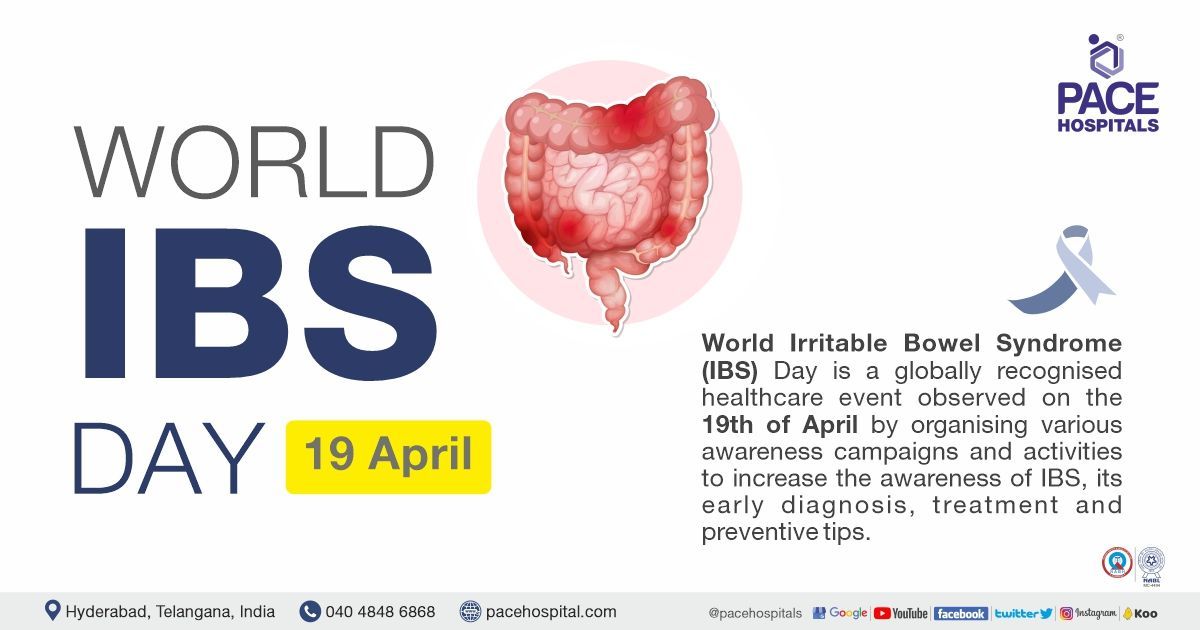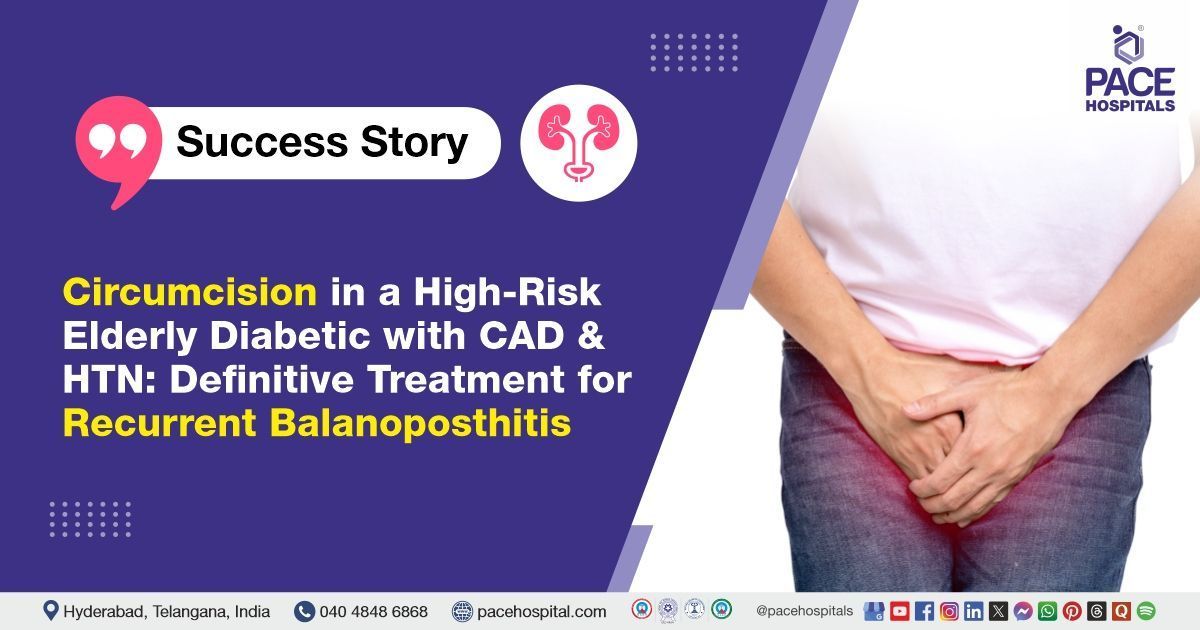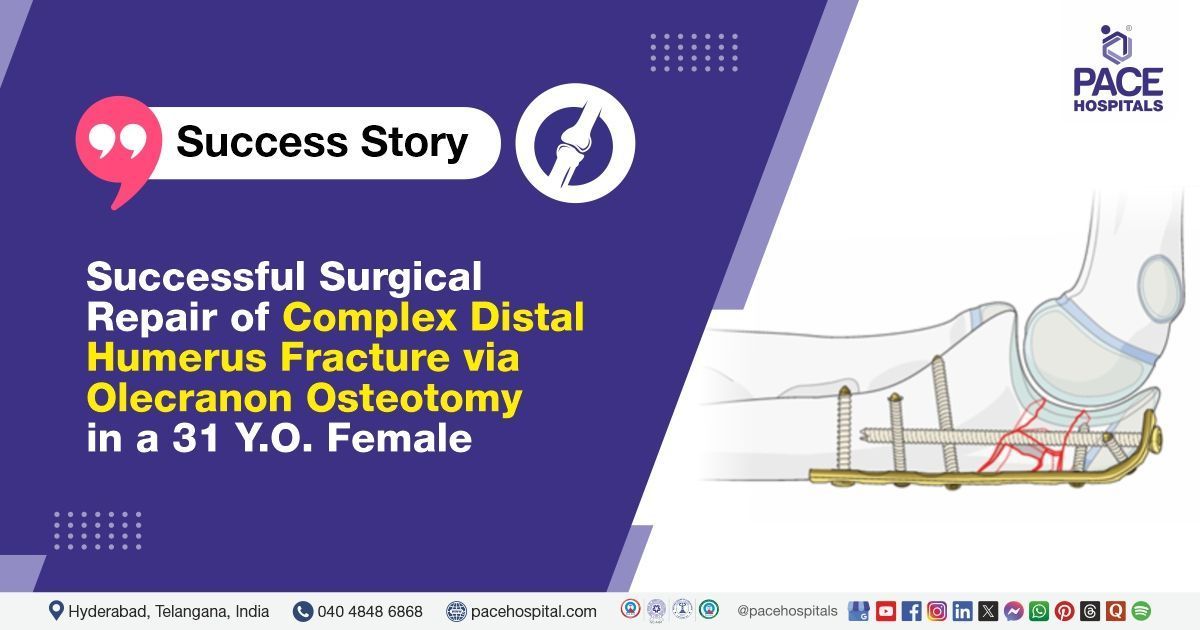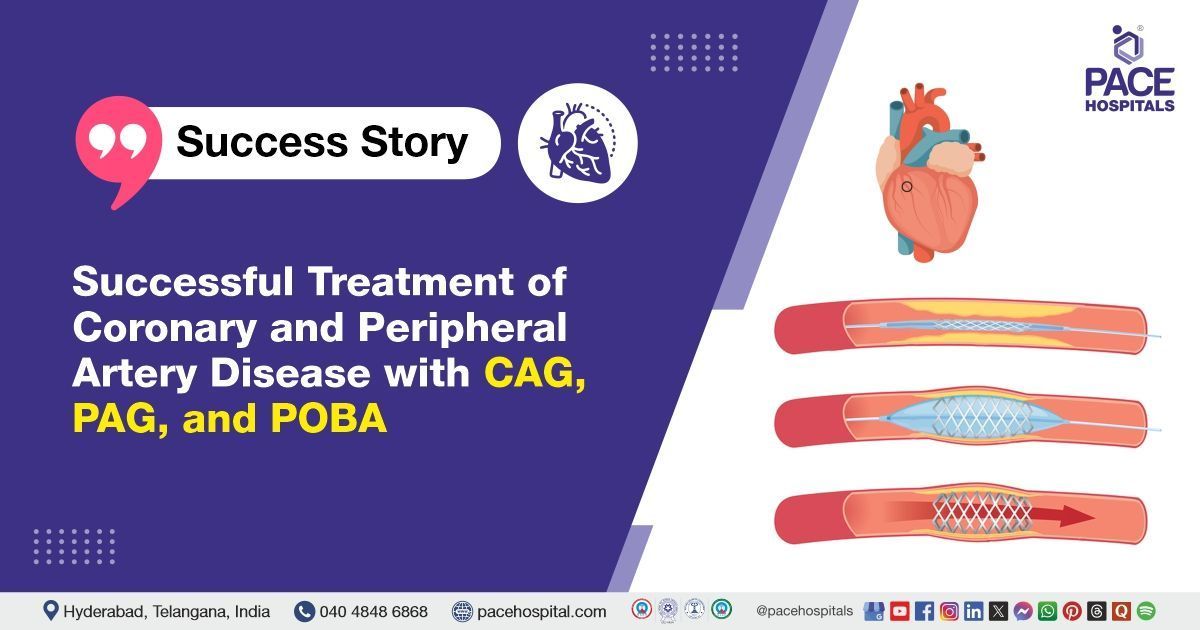Hello and welcome to PACE Hospitals podcast. Today we are tackling a common and often uncomfortable topic urinary tract infections or UTIs. Joining us today Dr. Abhik Debnath, consultant laparoscopic urologist, endo urologist and kidney transplant surgeon with expertise in treating UTIs.
Dr. Abhik Debnath, thank you for joining us at PACE Hospitals, Hitech City.
Thank you for inviting me. Today I will be discussing about a very important and common urological topic that is urinary tract infection.
Dr. Abhik Debnath thank you for joining us. Let's start with the basics.
What exactly are UTIs?
UTI is the inflammation of the urinary tract or what is called as the urothelium because of invasion by bacteria.
So, doctor, what are the different types of UTIs?
Urinary tract infection are commonly classified into two types, either in the form of their location or site where it is involved. Site in the sense in which part of the urinary tract it is involved. If it involves the bladder, it is called cystitis. If it involves the kidneys, it is called Pyelonephritis. In males there are additional entities called Epididymitis or Epididymo-orchitis or orcitis as well as prostatitis.
It can also be classified in the form of whether they are complicated or uncomplicated. A simple urinary tract infection that is infection in the bladder which is called cystitis in an adult woman is an uncomplicated urinary tract infection.
Complicated urinary tract infection occurs when urinary tract infection occurs in either children or in pregnancy or in elderly or in case of diabetic or immunocompromised patients or in case of men or in those where symptoms persist for more than 7 days despite treatment as well as in those in which there has been a history of catheterization or urinary tract instrumentation.
So what are the causes of UTIs?
So in general, urinary tract infection is a broad topic. It can affect almost anybody across all age groups. Let us consider the usual scenario in which urinary tract infection occurs in an adult woman.
In this case we have to understand that the main cause of infection is either the infection caused by a virulent organism that means bacteria which has a tendency to cause infection and inflammation and the second is decreased host immunity that means the local immunity as well as the systemic immunity especially here we give importance to the local immunity. If it comes down, then the bacteria gets the opportunity to cause infection and inflammation. So usually decreased local immunity occurs when there is a lack of hygiene or when there is a bowel problem or when there is diabetes or any sort of immunosuppression.
Apart from this, it can also occur when there is a hormonal imbalance in the form of let us say in case of postmenopausal women where the estrogen amount is less and which hampers the local immunity.
And coming to the bacterial virulence, we can say that if there is inadequate treatment of a urinary infection by either inappropriate or by a decreased dose or by decreased duration of the antibiotic which is given, or it can be in the form of bacteria which has caused infection in a hospital setting in which they are inherently resistant to commonly used antibiotics.
If there is inadequate treatment, then that microorganism or bacteria develops resistance towards that antibiotic or a group of antibiotics. In that case, that organism can cause a much more severe infection than normal because of its increased virulence.
What are the signs and symptoms of UTIs?
So in men or women, the common symptoms include frequency and urination, urgency and passage of foul smelling urine. Along with that, there is burning sensation in passing urine and occasional passage of blood or red tinted urine.
Apart from this, there can be fever, especially when there is infection of the kidneys which is called pyelonephritis. And in men, especially when the infection is localized to the testis, to the spermatic cord or to the prostate there can be confined pain along with fever and chills.
What are the complications of UTIs?
The most important complication of UTI is a scar to the kidney. So when the UTI causes organism or bacteria ascends from the bladder towards the kidney and can cause secondary infection of the kidney which is called pyelonephritis which presents in the form of fever, chills, flank pain and passage of foul smelling urine or along with passage of puss cells in the urine which is called pyuria and bacteriuria. In such patients it is very likely that when the infection heals there is a scarring of the Perenkaema of the kidney and ultimately this leads to decrease in the function of the kidney, which is one, another thing is give the infection causing organism, persist, then it can cause recurrent urinary tract infection. With every infection episode, there is hampering of the quality of life of the patient.
How to diagnose UTIs?
UTI diagnosis is mostly clinical and along with that the supportive tests that we commonly do includes a urine culture and sensitivity along with that a routine and microscopy of the unit.
So, usually we do not need any imaging tests, but if there are signs and symptoms which suggest that it could be a Pyelonephritis or a complicated UTI, then an imaging is necessary to rule out any other problem or issues associated with the kidney like hydronephrosis or presence of a stone or presence of a perinephric collection of abscesses.
Apart from this, an x-ray KUB can also be done to see for or look for a stone in the kidney. CT and MRI and radionucleid scanning are also done, but the scenarios are different and usually performed uncommonly, especially in the setting of either an abscess formation or systemic infection or in cases in which the infection does not resolve despite 48 to 72 hours of antibiotics.
What are the treatment options for UTIs?
The treatment of UTI is fairly simple. It is important to kill the organism completely and eradicate it from the body by antimicrobial therapy. So, a urine culture sensitivity test is sent, which should be a midstream urine culture.
Apart from that, as well as the urine culture is sent, an empirical antimicrobial therapy or antibiotic is started depending upon the usual local bacterial sensitivity protocol. Usual antibiotic that is given in urinary tract infections, especially the uncomplicated types, includes either a fluoropenolone or a portrimoxazone or phosphomycinone. The duration of the antibiotic is usually 3 to 5 days if uncomplicated.
What can be done to prevent UTIs?
The most important step in the prevention of UTI is first the eradication of the first UTI because most commonly we see that due to inadequate treatment of a current UTI it tends to recur, or the infection tends to persist.
So, to prevent another episode of an UTI, it's very important to adequately treat the current episode of UTI. Apart from this some common measures include the genital hygiene especially when I am talking about UTI or uncomplicated cystitis in case of adult woman it's important to maintain genital hygiene apart from that to control the sugars that is good glycemic control in case of diabetic patients and to maintain adequate hydration status.
Is long-term UTI dangerous?
UTI can be dangerous because UTI if it ascends to the kidney that means if it becomes a complicated UTI it can cause organ damage by causing a scarring especially into the kidneys and with recurrent UTI bouts the kidney's scarring can ultimately lead to loss of function of the kidney.
Why UTI is common in female?
UTI is actually common in women as compared to men because of the anatomical nature of the reproductive and the urinary tract. So, as we all know that in women the urethra that is the passage of the conduit of urine which is there below the bladder is very short it is about 3 to 4 centimeters in length.
The urinary tract or what we say the urethra is very close to the elementary tract or the rectum, that means the urethral opening is very close to the anal opening in case of a woman. So, it is very common, or it is very usual for a fecal organism or bacteria from the elementary tract to come and contaminate or infect the urinary tract in a woman.
Who treats UTIs?
Urinary tract infection is a very common illness, and it can be treated almost by any clinician, any physician. However, I would suggest that if there is any suspicion of a complicated UTI, then primarily it should be treated by a urologist.
Dr. Abhik Debnath thank you for sharing crucial information related to urinary tract infection to our listeners.
I hope this information will be enlightening for our viewers, and I hope that they can utilize the information for the betterment of their health. Thank you.
If any of you have any further questions about UTIs, please don't hesitate to consult a urologist and remember you are not alone. UTIs are common, but they are also treatable. We will be back soon with another important topic on Pace Hospital's podcast.













